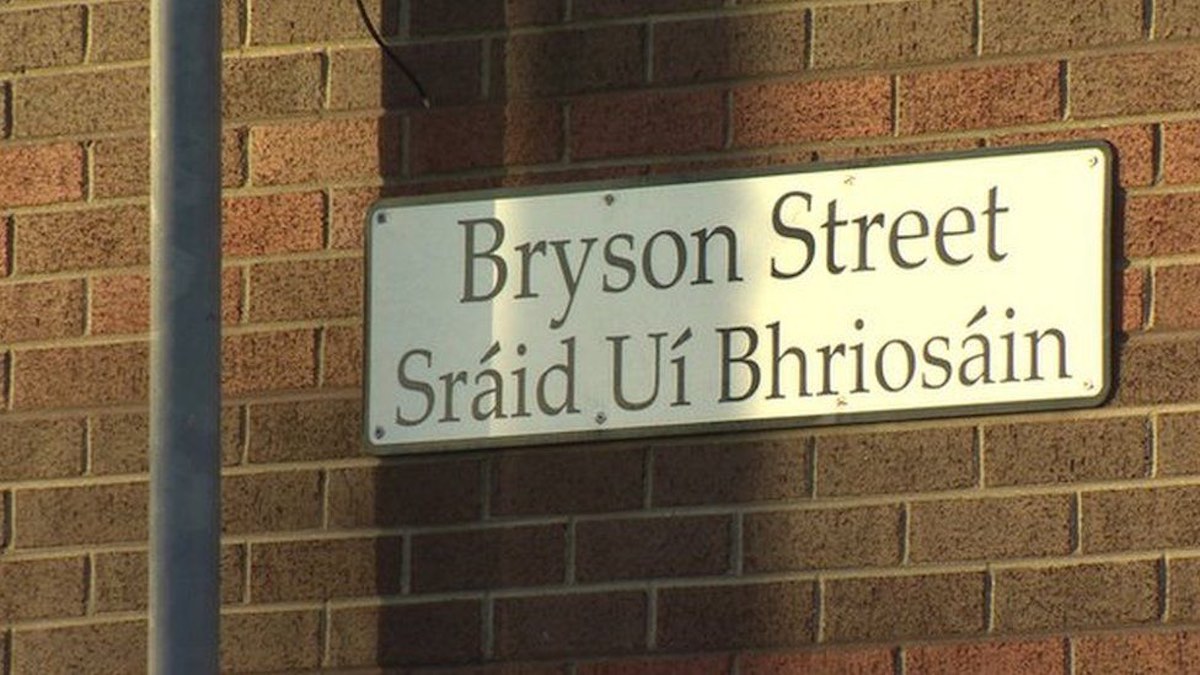
A unionist-dominated council area faces potential legal action over its refusal to introduce a policy on allowing dual language street signs.
Mid and East Antrim Borough is the last local council without a policy on street signs other than English. The area is represented at Westminster by DUP MP Sammy Wilson, who has frequently spoken out against Irish language rights.
In a historic development, legislation was passed at Westminster last year which finally scrapped a colonial-style Penal Law on the language and gave recognition to Irish in the north of Ireland.
However, that legislation has yet to be implemented, but the refusal to develop a language policy is still in breach of elements of a 1995 law on dual language and subsequent international conventions signed by London.
The 1995 Local Government Order allowed for signs in both English and another language, including Irish and Ulster Scots, with councils given responsibility.
While the order does not authorise or require councils to erect dual language signs, other local authorities have received legal advice that they should introduce a policy under both the 1995 provisions and subsequent conventions protecting the rights of minorities and their languages.
Mid and East Antrim council is the last holdout after other councils moved forward to recognise Irish language signs in different ways, most recently Ards and the North Down.
Irish language board Conradh na Gaeilge is investigating the legality of not having a policy in place, while also continuing action against restrictions that make it extremely difficult to have signs erected in Irish.
There have been sharp differences in the policies of the different council areas, with the process much easier in areas with a majority of nationalist and republicans.
There have been applications for dual language signs at more than 600 streets in Belfast since a new council policy was introduced in July 2022. But so far only one street, Ardilea Drive in north Belfast, has been proposed for Irish language signage under the new policy.
The Committee on the Administration of Justice (CAJ) is an activist group which is also supporting the drive to allow residents the choice to have dual language signs. It said the 1995 law “aimed to put an end to English-only policies for street signage”.
Daniel Holder, of the CAJ, said: “It is very difficult to see how a council can comply with the law without having some sort of policy and process for dealing with applications that takes into account the desire for signage by residents in a street.”
![[Irish Republican News]](https://republican-news.org/graphics/title_gifs/rn.gif)
![[Irish Republican News]](https://republican-news.org/graphics/title_gifs/harp.gif)

